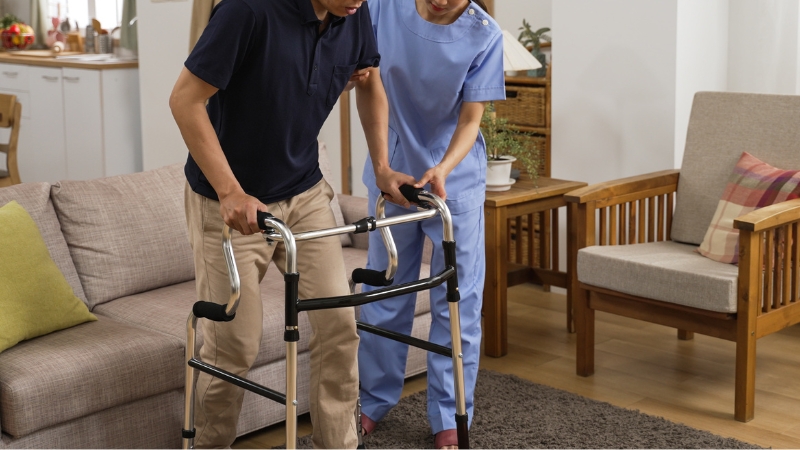Stroke Rehabilitation and Recovery"Comprehensive Care for Rebuilding Independence."

Our hospital provides extensive programs to assist patients in their road to recovery following a stroke, including specialized Stroke Rehabilitation and Recovery services. Our services are made with individualized care, focused therapies, and a multidisciplinary approach in mind, understanding the difficulties associated with post-stroke rehabilitation and aiming to maximize functional outcomes. This section will discuss the importance of Stroke Rehabilitation and Recovery, the conditions it treats, possible concerns, and the unique qualities that set us apart as a reliable source of first-rate rehabilitative care following a stroke.
What Is Stroke Rehabilitation and Recovery?
A comprehensive strategy is used in stroke rehabilitation and recovery to help people who have had a stroke return to their pre-disease state of maximum physical, mental, and emotional functioning. The goal of this procedure is to support the person in regaining their independence and enhancing their overall quality of life through a variety of medical interventions, therapies, and support systems.
Why Do You Need Stroke Rehabilitation and Recovery?
- Recovery from Immediate Effects: Stroke rehabilitation aids in the recovery of patients from the acute consequences of a stroke, including paralysis, trouble speaking, or diminished motor abilities.
- Preventing Recurrence: In addition to treating present problems, rehabilitation aims to reduce future stroke risk by dietary changes and medical supervision.
- Improving Quality of Life: Rehabilitation helps stroke patients regain their independence in daily activities like eating, dressing, and walking, which improves their overall quality of life.
- Emotional Support: Recognizing the mental health difficulties linked to stroke recovery, stroke care include providing emotional and psychological support to the patient as well as their family.
Possible Risks:
After a stroke, the risk of complications is typically modest when it comes to care and rehabilitation. However, it is possible for patients to feel a little uncomfortable or tired during treatment. Throughout the rehabilitation process, our medical professionals keep a careful eye on your progress and handle any problems that may come up.
Treatment Steps in Stroke Rehabilitation and Recovery:
- Assessment: A medical team, which frequently includes neurologists, evaluates the extent of the stroke's damage and creates a customized treatment plan based on that assessment.
- Acute Care: The initial course of treatment involves using medication, surgery, or other medical measures to address symptoms that are directly related to the stroke.
- Rehabilitation: A critical phase involves speech, occupational, and physical therapy, with the goal of assisting the patient in regaining lost capacities and independence.
- Medication: In order to address stroke risk factors and support the recovery process, medication may be given.
- Lifestyle Changes: Promoting a healthy lifestyle that includes giving up smoking, eating a balanced diet, and getting regular exercise can reduce the chance of having another stroke.
- Support: Patients and their family receive emotional and psychological support to help them deal with the difficulties of recovering from a stroke.
Our commitment to providing cutting-edge stroke care and rehabilitation services is evident. Our devoted medical professionals are committed to helping you or a loved one heal and become self-sufficient again. Get in touch with us to find out more about how we can assist you on your path to stroke recovery.
Top Asked Questions and Answers:
FAQ (Frequently Asked Questions):
+91-9144411108
Emergency Cases

